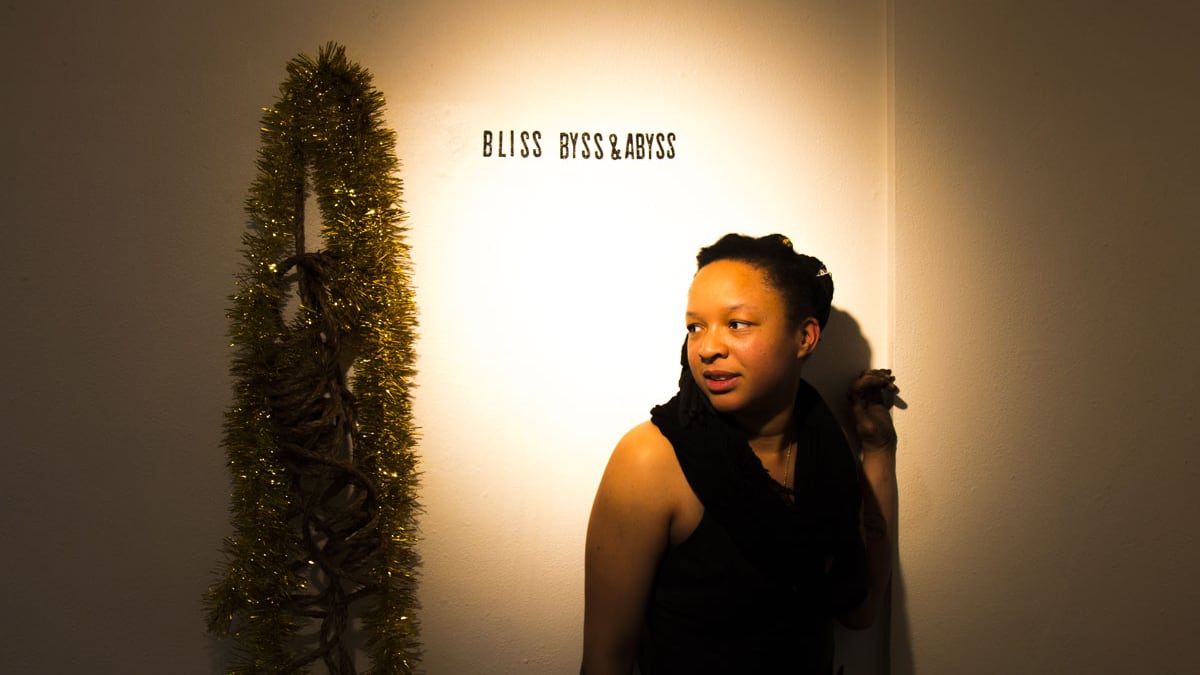Jamondria Harris knows how to handle nightmares.
"I'm not somebody who will be in a dream and turn around and say, 'You're not a real monster! I'm laughing at you!'" says the Portland artist, musician and poet. "But I can be like, 'This is a dream and I am waking up.'"
That power to control a dream is central to Quaerere, Harris' new book of poems and digital illustrations. Quaerere—which is being released alongside a companion LP of electronic music composed by Harris—has the elusive and meditative quality of an entrancing dream. You don't always understand what you are encountering, but it's impossible not to look and listen.
The music of Quaerere is an intriguing fusion. Akai MIDI keyboards are Harris' synthesizers of choice, but the album also features an organic element—Harris' singing. Harris doesn't often sing, but they relish experimenting with vocal loops and exploring how "something that's just me laughing or me holding a note or me saying one line or singing one line becomes this whole orchestra."
"I give myself permission to do whatever I feel with my art," Harris says. "Me creating this multimedia situation with Quaerere is me saying, 'This is the field of my work. This is the resonance field of what I have capacity for.'"
The best and worst of humanity collide in Quaerere. The project is partly about the love shared between black women, but it also probes the destructive force that is the white gaze.
"There's definitely moments in Quaerere where there are women at a club and they could be dancing or they could not be dancers or they could be strippers or they could not be strippers," Harris says. "This is my internal processing as a black woman—this is a black reality, this is blackness. This is in that liminal space where we are struggling to be in resonance with each other while being throttled by the white gaze."
The addition of Harris' digital art and synthesizer-based compositions completed Quaerere, though Harris doesn't want the audience to feel forced to experience the project's myriad elements all at once. "The album is its own resonance field that links with the book," Harris says, "but can be experienced on its own."
Quaerere is an intensely personal and thoughtful work, but overanalyzing Harris' art would miss the point.
"Somebody will see some of my work and want to force meanings into it, because they need this order," says Harris. "And what I'm saying is, 'That's violence to me. Do not do this, you're not helping me. You're imposing upon me your construction of legibility. Just let yourself engage with the words. Just feel them, let them wash over you, have them be what they are.'"
SEE IT: Jamondria Harris is at Polaris Hall, 635 N Killingsworth Court, mississippistudios.com, with Dolphin Midwives, on Thursday, Sept. 20. 7:30 pm. $10-$12. 21+.
